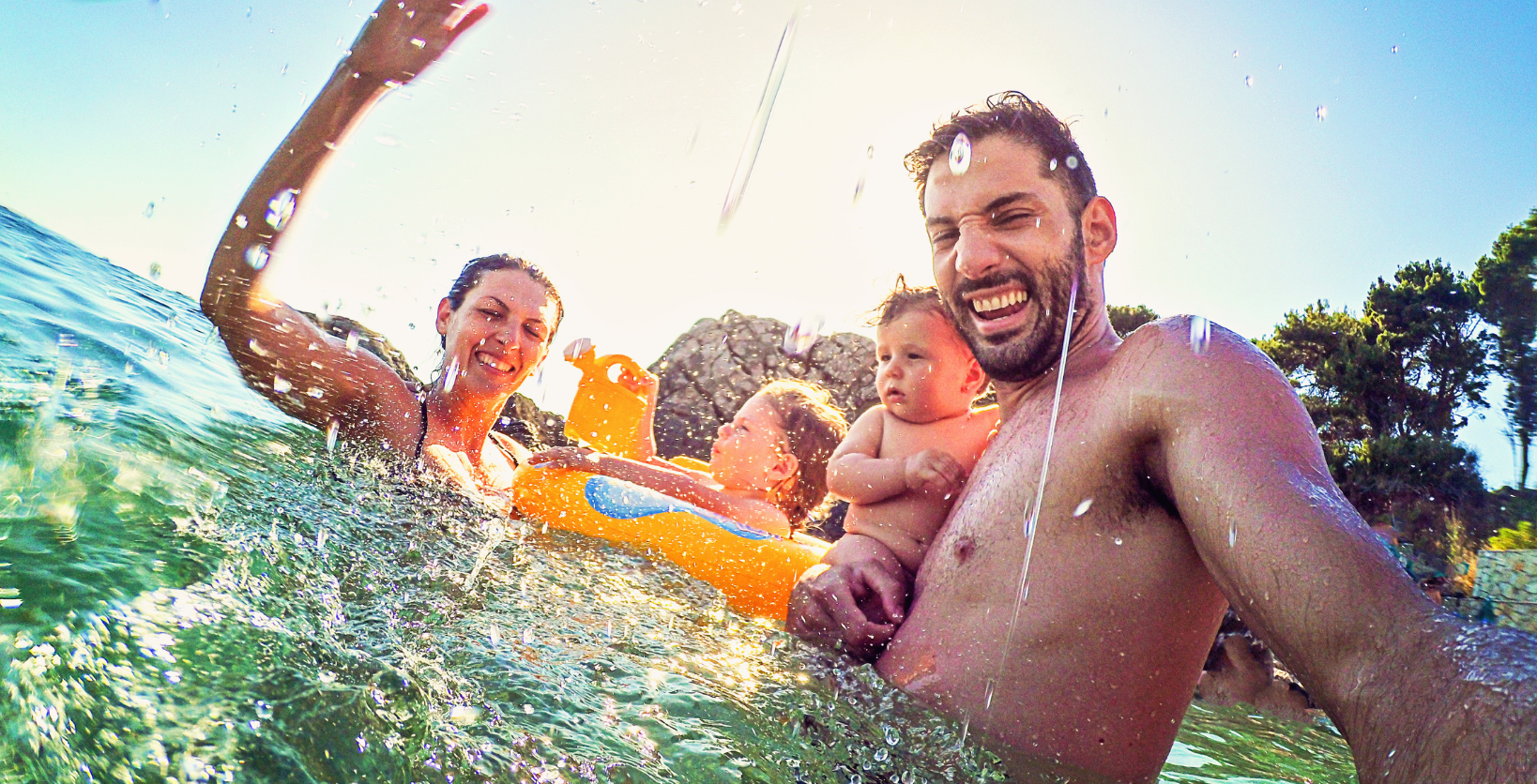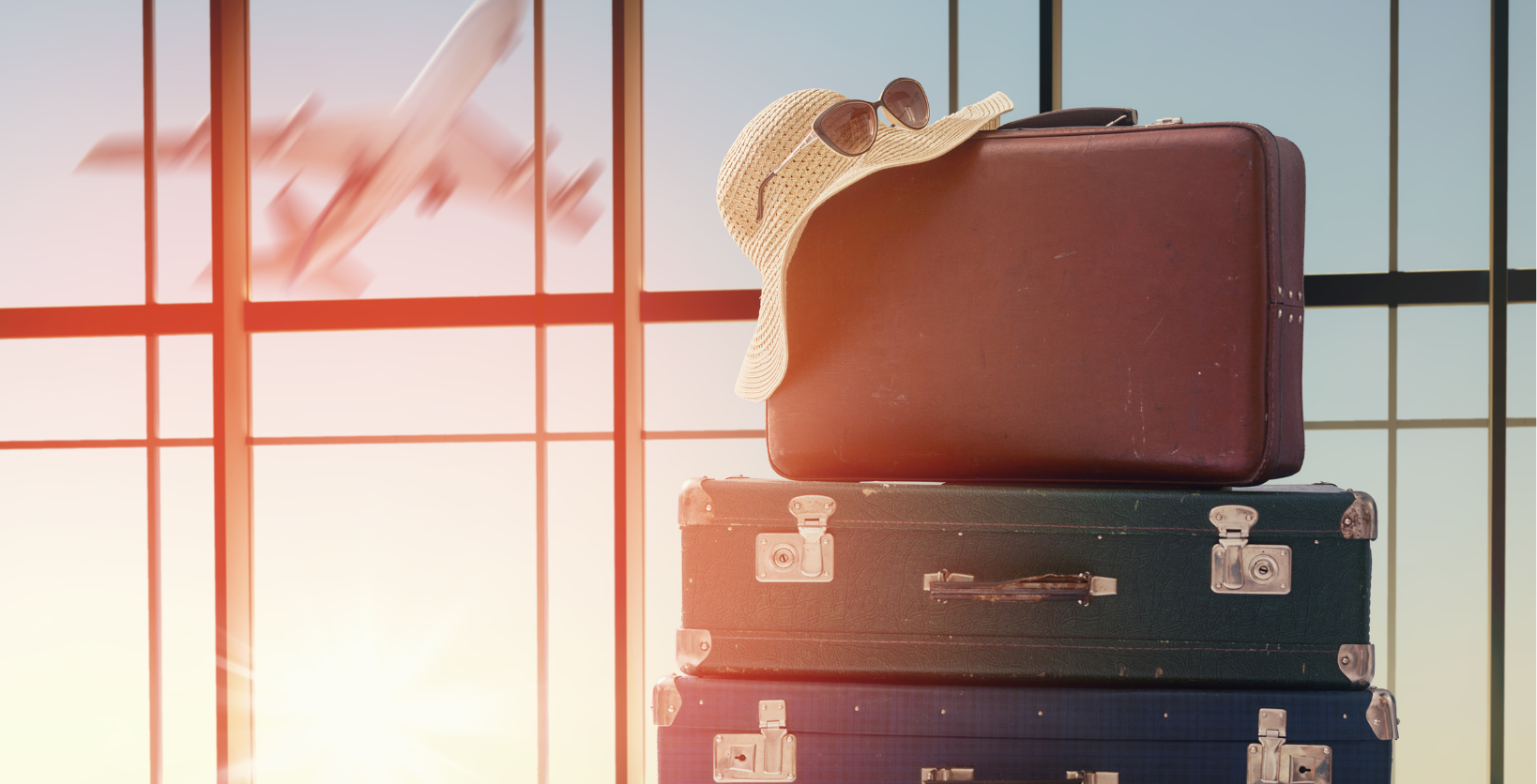Have you ever returned from a vacation feeling more exhausted than relaxed? If so, it might be time to rethink your approach to taking time off!
Vacations should be your sanctuary—a time to unwind, rejuvenate, and disconnect from the routine stresses of daily life. The joy of travel isn’t just in the journey or the destination, but in the renewed energy and peace of mind you bring back.
This guide offers seven tips to turn your holiday into a true retreat. Establishing a wellness state before you depart sets the stage for a trip that refreshes and enriches your life.

Tips for Relaxation on Vacation
From managing your budget wisely to fully disconnecting from work, these strategies are designed to ensure your vacation is as relaxing as it is memorable.
1. Start a Wellness State Before Your Trip
Getting ready for a relaxing vacation means addressing wellness from the inside out. If you’re feeling run-down before you even pack your bags, it’s time to boost your health and energy in preparation for your trip. A great way to increase your energy, metabolism, immunity, hydration, and weight loss is with intravenous therapy (IV Therapy).
One main cause of burnout is stress. Chronic stress has been linked to a range of health issues, from headaches to more serious conditions like heart problems and high blood pressure. Even if you feel like you have your everyday stress under control, it’s important to take regular breaks to decompress and give your body and mind the chance to recover fully.
If you’re feeling exhausted, stressed, or just want to boost your immune system, intravenous nutrient therapy or IV nutrient therapy offers many benefits before going on vacation. With a combination of vitamins and Myers’ Push therapy, you can boost your immune system, regain energy, and improve hydration before your vacation.
2. Budget for Relaxation and Enjoyment
While it may seem obvious, it’s easy to overlook additional expenses beyond transportation and accommodations. Most vacation planning starts with a budget.
You’ll want to research the costs for travel, lodging, meals, activities, souvenir shopping, and other anticipated expenses well in advance. Factor in extra funds for unforeseen expenses, such as forgetting essential items, spontaneous tours, or unexpected mishaps.
By creating a budget that includes a cushion for unexpected costs, you can avoid stress every time you need to spend money. Additionally, having a clear idea of your financial boundaries will help you manage your family’s and your expectations regarding vacation activities.

3. Relaxed Itinerary with Fun Things to Do
While planning activities for your vacation is part of the fun, you should also plan time to relax, unwind, take a nap, or just go with the flow.
Remember to consider your entire vacation period, including travel time. Allocate a day or two before and after your trip to prepare and decompress, allowing for a smoother transition between work and leisure.
4. Unplug From Work
Achieving true relaxation on vacation becomes challenging when you’re constantly tethered to work responsibilities. Here’s how to disconnect and enjoy your time away:
- Delegate Responsibilities: Before your vacation, assign tasks to colleagues or team members to cover essential work duties in your absence. Set up an auto-reply message for your work email (and personal email if work-related), providing contact information for urgent matters. While completely disconnecting may not be feasible for everyone, delegating responsibilities can help alleviate the pressure to stay connected.
- Set Boundaries: Establish boundaries for checking work-related communication during your vacation. If possible, limit the amount of time you spend at work each day. For example, designate a specific window, such as 30 minutes in the afternoon, to check and respond to emails. Once this time ends, refrain from engaging with work-related tasks until the following day.
- Prioritize Relaxation: Remember that your vacation is a time to unwind and recharge. Focus on immersing yourself in leisure activities and enjoying quality time with loved ones.
By setting clear boundaries and prioritizing relaxation, you can disconnect from work and fully embrace your vacation’s restorative benefits.

5. Organize and Pack with Ample Time
While spontaneity can add excitement to your holiday planning, organization is key when it comes to packing. Don’t leave packing until the last minute, as this can lead to unnecessary stress and forgotten essentials. Instead, start early to ensure a smooth and hassle-free experience.
Creating a packing list is a helpful way to ensure nothing is overlooked. Begin with essentials such as your passport, phone, charger, keys, wallet, visas or travel documents, and prescription medication. Consider your destination’s weather and dress codes when selecting clothing items, ensuring you pack suitable outfits for various activities and occasions.
Avoid haphazardly throwing together clothing items, as mismatched outfits can cause discomfort and inconvenience. Opt for coordinated attire that suits the climate and activities you have planned. Additionally, packing toiletries in a transparent plastic bag can expedite the security screening process, saving you time and hassle at the airport.
6. Plan Activities for You, Too
To truly unwind on vacation, prioritize what you and your guests like to do. If you have limited time, consider prioritizing big activities that will lead to the happiest moments for you and your party.
If spending time with extended family or navigating bustling tourist attractions adds to your stress, forcing yourself to find relaxation in these situations may only exacerbate tension. Instead, recognize that relaxation looks different for everyone.
Consider whether a tranquil weekend getaway at a spa or a retreat to the countryside for nature exploration aligns more with your ideal vacation experience. Remember, your vacation is an opportunity for personal rejuvenation and family bonding.
Parents often prioritize their children’s enjoyment on vacation, sometimes neglecting their need for relaxation. However, setting aside time for self-care sets a positive example for your children and promotes a healthy balance of priorities. Whether engaging in outdoor activities together or carving out moments for personal leisure, striking this balance ensures everyone enjoys a fulfilling vacation experience.

7. Bring a Relaxed State of Mind
In the lead-up to your vacation, practice mindfulness and relaxation techniques. Whether it’s meditation, yoga, or simply dedicating time to read your favorite book, reducing stress beforehand means you can truly enjoy your time off. It’s also important to bring things that help you relax while on vacation, such as a neck pillow for the plane.
Remember to prioritize self-care, set boundaries with work, and cultivate a relaxed mindset throughout your time off.

